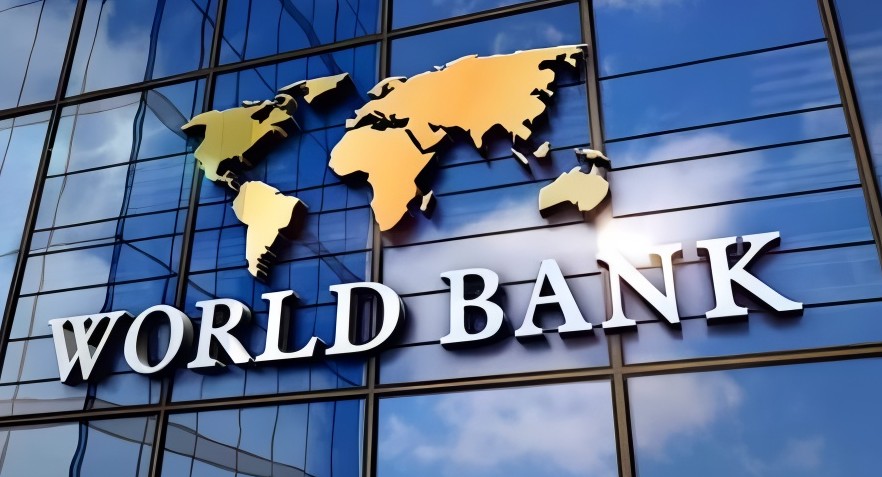World Bank unveils Sh16.5 billion initiative to empower Kenya’s vulnerable groups

The World Bank has unveiled a fresh Sh16.5 billion initiative aimed at improving the lives of vulnerable groups in Kenya, including the elderly, youth, women and persons with disabilities, by expanding access to income opportunities and essential services.
The funding, totalling US$127.5 million, has been approved under the Second Kenya Social and Economic Inclusion Project (KSEIP2), which builds on the success of the first phase and is designed to reach over 12 million Kenyans.
The project seeks to support struggling households by strengthening their ability to meet basic needs, generate income and withstand economic and climate-related shocks such as rising food prices and droughts.
According to the World Bank, the funds will go through existing government systems, particularly the National Safety Net Program, to provide structured cash transfers to orphans, elderly persons, and people with disabilities.
The goal is to move beyond one-time aid and empower families to support themselves sustainably.
“This is about helping the most vulnerable Kenyans access better opportunities and prepare for the future,” said Qimiao Fan, World Bank Director for Kenya.
“It’s not just about handing out money, but ensuring families can support themselves in the long run through employment and better access to healthcare and education.”
A key feature of the project is the ‘cash-plus’ model, which combines regular cash support with other benefits such as job training, business development, and links to public pension and insurance services.
It will also promote the adoption of climate-smart practices to build resilience among low-income households.
The project includes a strong focus on children and adolescents, with planned investments in nutrition, life skills and education support to give young people the tools they need for a productive and healthy future.
This approach aims to break the cycle of poverty by strengthening the next generation.
To address the impact of frequent droughts, particularly in Kenya’s northern regions, KSEIP2 will also feature a rapid response system that can quickly deliver emergency cash assistance during times of crisis.
World Bank Senior Economist and project lead Shubha Chakravarty noted that the support aligns with Kenya’s commitment to reducing poverty and creating opportunity.
“This support aligns with our goal of giving every Kenyan a fair shot at success. It focuses on building productive households rather than creating dependence,” he said.
The project follows earlier efforts by the World Bank to assist vulnerable Kenyans. The initial KSEIP helped families set up small businesses and access essential services.
Other similar efforts include the Kenya Youth Employment and Opportunities Project (KYEOP), which gave young people access to training and start-up capital to begin income-generating ventures.
Through KSEIP2, the World Bank is reinforcing its long-standing partnership with Kenya in efforts to reduce poverty, create jobs and strengthen social safety nets for those who need them most.
The funding, totalling US$127.5 million, has been approved under the Second Kenya Social and Economic Inclusion Project (KSEIP2), which builds on the success of the first phase and is designed to reach over 12 million Kenyans.
The project seeks to support struggling households by strengthening their ability to meet basic needs, generate income and withstand economic and climate-related shocks such as rising food prices and droughts.
According to the World Bank, the funds will go through existing government systems, particularly the National Safety Net Program, to provide structured cash transfers to orphans, elderly persons, and people with disabilities.
The goal is to move beyond one-time aid and empower families to support themselves sustainably.
“This is about helping the most vulnerable Kenyans access better opportunities and prepare for the future,” said Qimiao Fan, World Bank Director for Kenya.
“It’s not just about handing out money, but ensuring families can support themselves in the long run through employment and better access to healthcare and education.”
A key feature of the project is the ‘cash-plus’ model, which combines regular cash support with other benefits such as job training, business development, and links to public pension and insurance services.
It will also promote the adoption of climate-smart practices to build resilience among low-income households.
The project includes a strong focus on children and adolescents, with planned investments in nutrition, life skills and education support to give young people the tools they need for a productive and healthy future.
This approach aims to break the cycle of poverty by strengthening the next generation.
To address the impact of frequent droughts, particularly in Kenya’s northern regions, KSEIP2 will also feature a rapid response system that can quickly deliver emergency cash assistance during times of crisis.
World Bank Senior Economist and project lead Shubha Chakravarty noted that the support aligns with Kenya’s commitment to reducing poverty and creating opportunity.
“This support aligns with our goal of giving every Kenyan a fair shot at success. It focuses on building productive households rather than creating dependence,” he said.
The project follows earlier efforts by the World Bank to assist vulnerable Kenyans. The initial KSEIP helped families set up small businesses and access essential services.
Other similar efforts include the Kenya Youth Employment and Opportunities Project (KYEOP), which gave young people access to training and start-up capital to begin income-generating ventures.
Through KSEIP2, the World Bank is reinforcing its long-standing partnership with Kenya in efforts to reduce poverty, create jobs and strengthen social safety nets for those who need them most.
World Bank
IMF
world bank kenya
world bank loans
PWDs
the elderly
World Bank funding
World Bank Group
National Safety Net Program
Let’s Connect
We’re here to listen, support, and engage with you.
Whether it’s feedback, a request, or collaboration — Hon. Jalang’os team welcomes your message.
Office Address
Langata Constituency Office, Nairobi
Call
+254 722 400 737
“Leadership is not about position — it’s about purpose, people, and progress.”